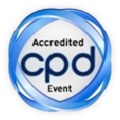
Yafra Khan
Universiti Malaysia Sarawak, Malaysia
Title: E-BABE-Encyclopedia of bioanalytical methods for bioavailability and bioequivalence studies of pharmaceuticals
Biography
Biography: Yafra Khan
Abstract
The lack of clean water resources is one of the direst issues faced by humanity, especially in the developing countries. Therefore, management of water resources to optimize the quality is very crucial. There has been a lot of research in past few years to find ways of using technology for efficient water quality management and solving issues surrounding this. In more recent years, some work has been done to improve the prediction accuracy of water quality using Artificial Intelligence algorithms like Artificial Neural Networks (ANN), Bayesian Networks (BN) etc. However, more work needs to be done in terms of reliability, accuracy and usability of these water quality management tools. The goal of this research is to develop a methodology using a hybrid of ANN and fuzzy inference, known as Adaptive Neuro- Fuzzy Inference System (ANFIS) as well as using GIS tools to improve the prediction accuracy. The data for this research has been taken from United States Geographical Survey (USGS), with Time-Series data for six months (January-June) each of the year 2014 and 2015. The data includes 17 quality parameters. The integration of Artificial Intelligence and GIS techniques intends to provide a comprehensive methodology for effective analysis and prediction of future trends of water quality. This research intends to utilize both these tools by interactive display and graphical manipulation of the results produced. This research also studies different aspects of the methodologies used in past, reflects upon current and future challenges as well as provides insight into further improvements.

